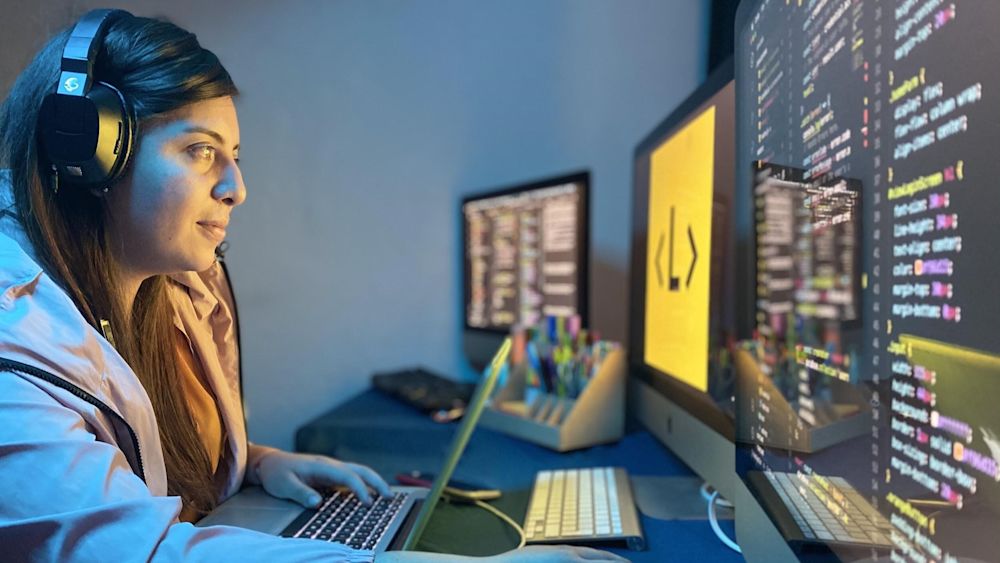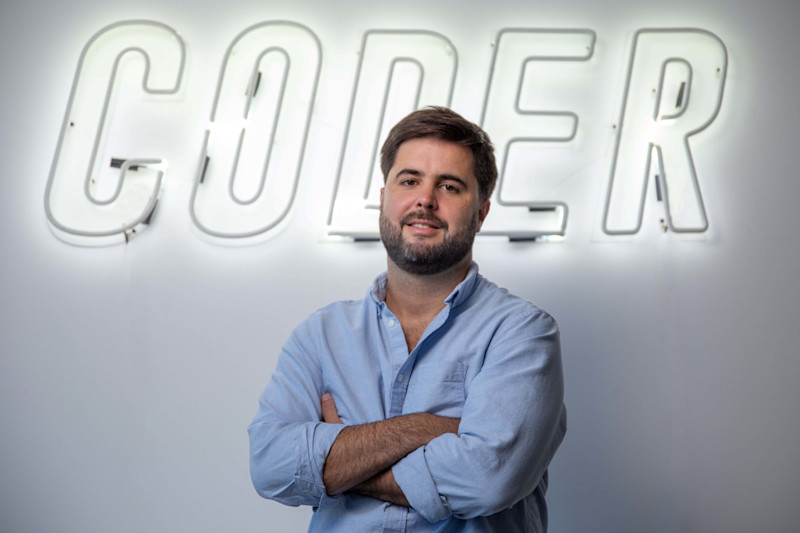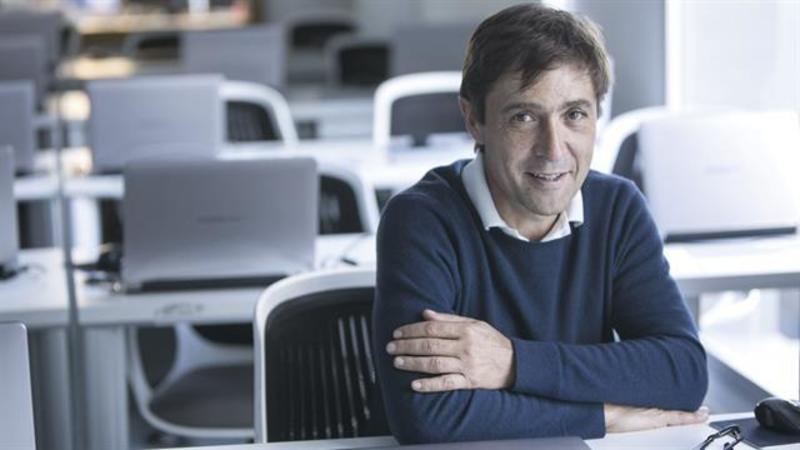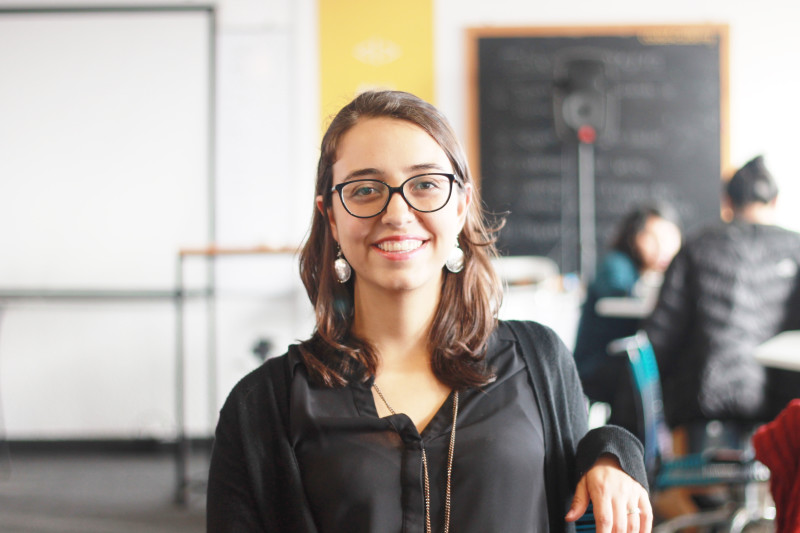- Iterate
- Meet The Team
- The Top 5 Bootcamps Helping Close LatAm’s Digital Talent Gap
The Top 5 Bootcamps Helping Close LatAm’s Digital Talent Gap
Table of contents
Besides aiming to become profitable startups, bootcamps are also solving major global problems. Worldwide, the demand for tech talent is outpacing an already limited supply. These widely available bootcamps are designed with industry needs in mind and mostly attract individuals looking to make a career change or learn new skills. The Org spoke to bootcamp founders across Latin America to find out their unique approaches in bridging the tech talent gap.

Bootcamps have evolved.
Previously associated with rigorous and intense physical activity, the word now embodies a not so physical -- but still rigorous and intense -- learning experience involving training in-demand digital skills.
With the rise of the digital economy, remote work and the imminent need for talent reskilling and upskilling, hundreds of bootcamps have popped up around the globe offering courses in full stack web development, digital user experience, data analytics, and more.
These widely available bootcamps are designed with industry needs in mind and mostly attract individuals looking to make a career change or learn new skills. Alongside content, the virtual schools also provide job placement assistance for graduates.
Besides aiming to become profitable startups, the bootcamps are also solving major global problems. Worldwide, the demand for tech talent is outpacing an already limited supply. Access to digital infrastructure and skills is restricted by socio-economic status, and emerging technologies like the rapid adoption of AI and automation of jobs are quickly amplifying the need for digital skills. These programs offer more affordable and accessible education to meet new needs and reduce the ever-present skills gap.
According to a future of jobs report by the WEF, by 2025 85 million jobs could be displaced by a shift in the division of labour between humans and machines, while 97 million new roles could emerge from the new division -- but they would demand new digital skills. The IDB highlights that in programming alone there is currently a deficit of around 1 million workers in Latin America.
That deficit isn’t helped by the rapidly accelerated switch to digital-first work environments brought on by the pandemic, a transition that was initially given a decade to achieve, resulting in a double disruption scenario. According to RAND, 14 G20 countries could miss out on $11.5 trillion in cumulative GDP growth because of the current gap.
The Org had the opportunity to speak to several bootcamp founders across Latin America that are playing an active role in reskilling and upskilling individuals across the region, and find out their unique approaches to bridging the tech talent gap.
Bedu
Bedu was born in Mexico in 2015 as Moís Cherem’s second venture. In its early days, the company offered classes focused on management issues for entrepreneurs, but rapidly changed its focus to digital skills due to the high demand in the market.
Bedu provides people with no digital background the tools they need to start their career in the tech world. The bootcamp aims to reinvent traditional education, offering hands-on experience combining human teaching and technology. Its training scheme is modular, which means that students can acquire just the module they need for their development. All the learning is supported by Bedu’s app.
In 2019 the startup raised $4 million from Elevar Equity and to date it has 5,000 graduates distributed between Mexico, Spain and Colombia. This year Bedu was recognized in switchup’s Best Coding Bootcamps of 2021 as one of the best coding schools in the world.
Coderhouse
Coderhouse is a Y Combinator alum aiming to democratize education in Latin America. Having been part of the prestigious accelerator, Coderhouse is on a path towards exponential growth.
Since its founding in 2014, more than 50,000 students have graduated from its programs and the startup is looking to reach 100,000 active students by 2023.
CEO and founder Christian Patiño tells The Org “what differentiates Coderhouse is that our courses are as affordable as moocs (massive open online courses) such as Coursera and Platzi, and are as effective as bootcamps.” Patiño highlights that, on average, courses have a 90% completion rate, a difficult feat to achieve in the industry.

The startup is challenging traditional models where only those who can pay can learn. The team is intentional about helping students who are committed to learning and further developing their knowledge. The merit scholarship for example allows students to obtain a 70% discount on any course; the requirement is that they attend over 85% of the lessons and submit all assignments on time.
Coderhouse raised $13.5 million in July 2021, and wants to use that funding to become the leading education platform in the region. The company will use the funds for product improvement, regional expansion efforts and growing the team, says Patiño, while building “quality education that is affordable, accessible and scalable.”
Digital House
Established in 2016 in Argentina, Digital House is an edtech focused on developing talent through online courses. Since its inception, the startup has seen incredible growth. In 2020, more than 28,000 students completed Digital House’s online courses and in 2021 it is expected that more than 43,000 people from all over the region will use its platform as a way to learn new skills.
Emphasizing practical application, the coding school offers courses ranging in length from six months to two years in a hybrid model where students attend live online classes led by in-house professors mixed with asynchronous content that is available at any time.
“In Latin America we live in a paradox; our economies are based on the export of commodities, but we have high unemployment rates. The digital talent gap is a huge challenge, but at the same time a great opportunity for our countries,” says Nelson Duboscq, CEO and co-founder of Digital House.
“Empowering people and organizations with the right skills will lead LatAm to become a key player in the digital world. That is the vision of DH, to be the platform for digital transformation in Latin America.”

The startup raised $50 million in 2021 to continue its expansion in Latin America and branch out in its course offering. Remarkably, two of the largest investors in its latest fundraising round are not venture capital firms. LatAm’s most valuable company, e-commerce giant Mercadolibre, and software factory Globant joined forces in the investment. Digital House has launched a two year career program with Globant and Mercadolibre called Certified Tech Developer.
Henry
Also a Y Combinator backed startup from Argentina, Henry offers individuals a different model to access its programs. The bootcamp allows students to complete courses at no cost, and once the graduate is employed -- something the startup also provides assistance with -- they enter a shared income agreement where they repay Henry for their newly acquired skills.
Henry has a rigorous screening process where only around 3% of the applicants are accepted into the programs. As a result it encourages companies to ‘hire a Henry,’ where the startup plays an active role placing alumni into positions and cultures that are a right fit.
Henry is also helping more women get into the field of software development. Internally, Henry’s remote team breakdown is 20% women and 64% men. The student roster reflects a similar breakdown.
In December 2020 Henry raised a $1.5 million seed round bringing total funding to $1.8 million. The original $300,000 came from Y Combinator.
Laboratoria
The Peruvian social impact startup offers online programs designed to transform how people learn and work, and instill in them the ability to become lifelong learners and agents of change.
With a profound focus on diminishing the enormous gender gap in Latin America’s tech ecosystem, Laboratoria’s bootcamp trains women for roles as web developers or UX designers and connects them with companies looking to hire diverse talent. Only graduates who secure jobs in tech pay for the program.
Through its corporate training program, the startup reskills employees to help organizations create a culture of continuous learning. With a presence in Brazil, Colombia, Chile, Mexico and Peru, the company has seen over 2,000 women graduate its program, of which 83% have been employed with an average of a 2.7x salary increase.
Co-founder and CEO Mariana Costa was named one of MIT’s leading innovators under 35 in 2015, and one of the world’s most influential women by the BBC in 2016.

“We started Laboratoria seven years ago to encourage women in Latin America who dream of a better future to start and grow careers in the technology sector,” Costa told The Org.
“This is a sector where, because of deep stereotypes, women are a marked minority, and we are committed to changing this because we believe that having more women creating technology is a key part of designing a better and more equitable future. "
--
The Org is a professional community where transparent companies can show off their team to the world. Join your company here to add yourself to the org chart!
In this article


The ORG helps
you hire great
candidates
Free to use – try today